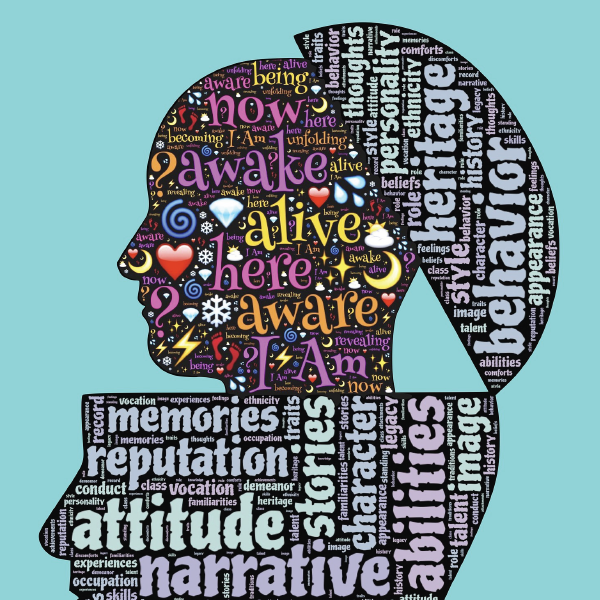Bronfenbrenner’s bioecological model is a theory of educational psychology that studies human development over time. Urie Bronfenbrenner was a Russian-American developmental psychologist whose bioecological model was integral to the formation of American Headstart pre-kindergarten programs. [1] He was influenced by fellow developmental psychologist Lev Vygotsky. The model suggests the interactions between the individual and their […]
Discovery Learning (Bruner)
Summary: Discovery Learning is a method of inquiry-based instruction, discovery learning believes that it is best for learners to discover facts and relationships for themselves.
Originator: Jerome Bruner (1915-)
Keywords: Inquiry-based learning, constructivism
Discovery Learning (Bruner)
Discovery learning is an inquiry-based, constructivist learning theory that takes place in problem solving situations where the learner draws on his or her own past experience and existing knowledge to discover facts and relationships and new truths to be learned. Students interact with the world by exploring and manipulating objects, wrestling with questions and controversies, or performing experiments. As a result, students may be more more likely to remember concepts and knowledge discovered on their own (in contrast to a transmissionist model). Models that are based upon discovery learning model include: guided discovery, problem-based learning, simulation-based learning, case-based learning, incidental learning, among others.
Proponents of this theory believe that discovery learning has many advantages, including:
Educational Robotics and Constructionism (Papert)
Summary: Constructionism as a learning theory emphasizes student-centered discovery learning, and educators are currently expanding its reach to the field of educational robotics in order to engage students. Originators and Key Contributors: Seymour Papert took Piaget’s theory of constructivism and adapted it into his theory of constructionism. Keywords: constructivism, constructionism, learning theory, discovery learning, educational […]
Online Collaborative Learning Theory (Harasim)
Summary: Online collaborative learning theory, or OCL, is a form of constructivist teaching that takes the form of instructor-led group learning online. In OCL, students are encouraged to collaboratively solve problems through discourse instead of memorizing correct answers. The teacher plays a crucial role as a facilitator as well as a member of the knowledge […]
Learner-centered design
Summary: Learner centered design focuses on creating software for heterogeneous groups of learners who need scaffolding as they learn while completing constructivist activities.
Originators and Key Contributors: Elliot Soloway, Mark Guzdian, Kenneth E. Hay
Keywords: constructivism, learner-centered design, learners, scaffolding, software
Learner-centered Design
Learner-centered design (LCD) theory emphasizes the importance of supporting the learners’ growth and motivational needs in designing software. In addition, since learners have different learning needs and learn in different ways, the software must be designed for the specific learner-audience.
The concept of scaffolds is central to learner-centered design. In order to support learners optimally, software should be designed with scaffolds that will support the learners as they need it. Examples of scaffolds in software are hints, explanation and encouragement to help learners understand a process, and questions to help learners reflect on what they are learning.
Software scaffolds that support learners best are adaptive, meaning that they change according to what the learner needs in any learning moment. When a learner needs more support, the software provides an increase in feedback to help the learner grow, stay engaged, and progress in mastering a skill. When the learner is reaching mastery, the software will provide reduced scaffolds in response to the learner’s increased skill level.
In focusing on learner-centered design, four elements must be addressed in designing the software. They are:
Constructivism
Constructivism as a paradigm or worldview posits that learning is an active, constructive process. The learner is an information constructor. People actively construct or create their own subjective representations of objective reality. New information is linked to to prior knowledge, thus mental representations are subjective. Contents Contributors Key Concepts Resources and References Contributors Lev Semyonovich […]
Connectivism (Siemens, Downes)
Summary: Connectivism is a learning theory that explains how Internet technologies have created new opportunities for people to learn and share information across the World Wide Web and among themselves. Originators & Proponents: George Siemens, Stephen Downes Keywords: communication, connection, distributed cognition, distributed learning, information, Internet, knowledge sharing, links, massive open online course (MOOC), nodes, […]
Anchored Instruction (Bransford, Cognition & Technology Group at Vanderbilt)
Summary: Anchored Instruction involves the use of an “anchor” material or media, often a video, to create a shared experience among learners and a beginning point for further learning on a topic. Originators & Proponents: Cognition & Technology Group at Vanderbilt (CTGV), John D. Bransford Keywords: anchor, case-based learning, case study, curriculum, discussion, shared experience, […]
Social Development Theory (Vygotsky)
Summary: Social Development Theory argues that social interaction precedes development; consciousness and cognition are the end product of socialization and social behavior.
Originator: Lev Vygotsky (1896-1934).
Key terms: Zone of Proximal Development (ZPD), More Knowledgeable Other (MKO)
Vygotsky’s Social Development Theory
Vygotsky’s Social Development Theory is the work of Russian psychologist Lev Vygotsky (1896-1934), who lived during Russian Revolution. Vygotsky’s work was largely unkown to the West until it was published in 1962.
Vygotsky’s theory is one of the foundations of constructivism. It asserts three major themes:
Major themes:
Social interaction plays a fundamental role in the process of cognitive development. In contrast to Jean Piaget’s understanding of child development (in which development necessarily precedes learning), Vygotsky felt social learning precedes development. He states: “Every function in the child’s cultural development appears twice: first, on the social level, and later, on the individual level; first, between people (interpsychological) and then inside the child (intrapsychological).” (Vygotsky, 1978).
The More Knowledgeable Other (MKO). The MKO refers to anyone who has a better understanding or a higher ability level than the learner, with respect to a particular task, process, or concept. The MKO is normally thought of as being a teacher, coach, or older adult, but the MKO could also be peers, a younger person, or even computers.
Stage Theory of Cognitive Development (Piaget)
Summary: Piaget’s Stage Theory of Cognitive Development is a description of cognitive development as four distinct stages in children: sensorimotor, preoperational, concrete, and formal.
Originator: Jean Piaget (1896-1980)
Key Terms: Sensorimotor, preoperational, concrete, formal, accommodation, assimilation.
Piaget’s Stage Theory of Cognitive Development
Swiss biologist and psychologist Jean Piaget (1896-1980) observed his children (and their process of making sense of the world around them) and eventually developed a four-stage model of how the mind processes new information encountered. He posited that children progress through 4 stages and that they all do so in the same order. These four stages are:
Sensorimotor stage (Birth to 2 years old). The infant builds an understanding of himself or herself and reality (and how things work) through interactions with the environment. It is able to differentiate between itself and other objects. Learning takes place via assimilation (the organization of information and absorbing it into existing schema) and accommodation (when an object cannot be assimilated and the schemata have to be modified to include the object.
Preoperational stage (ages 2 to 4). The child is not yet able to conceptualize abstractly and needs concrete physical situations. Objects are classified in simple ways, especially by important features.








